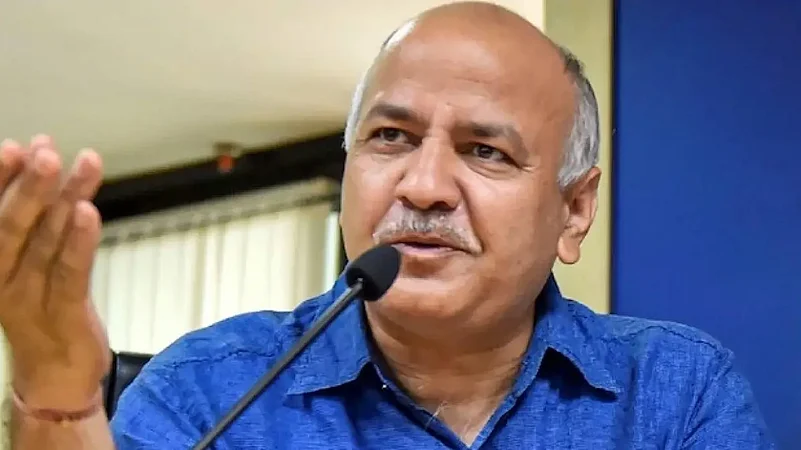For the past one week, the Aam Aadmi Party (AAP) government and the Centre have been at loggerheads with each other over the alleged corruption charges against Delhi’s Deputy Chief Minister Manish Sisodia, in the new liquor policy. Sisodia, who currently holds the excise portfolio, was questioned in this regard on August 19 by the Central Bureau of Investigation (CBI) at his residence.
The development comes a month after Delhi Lieutenant Governor Vinai Kumar Saxena ordered a CBI probe over the alleged violations in the Delhi Liquor Policy 2021-22.
The CBI in its first information report (FIR), has named Sisodia as the prime accused in the case for taking decisions pertaining to the policy without the approval of competent authority and extending “undue favors to the licensees’ post tender.”
The FIR has also been filed against 16 others including, then Delhi Excise Commissioner Arava Gopi Krishna, the then Deputy Commissioner Excise, and Assistant Commissioner (Excise) Pankaj Bhatnagar. As per the FIR, some L-1 license holders allegedly issue credit notes to retail vendors with an intention to divert the funds as an undue pecuniary advantage to public servants.
While the CBI is still probing the matter, the Enforcement Directorate (ED) is also planning to file a case against Sisodia over the violations of sections in the Prevention and Money Laundering Act (PMLA).
New Liquor Policy Controversy
The new liquor policy was launched in November last year and came into force on June 11 this year. According to the Delhi government, the new liquor policy was implemented to augment the state’s excise duty revenue by Rs 9,500 crore, simplify the liquor pricing mechanism, check malpractices and evasion of duty in the liquor trade, ensure equitable access to liquor supply and to transform the nature of liquor trade commensurate to the changing nature of Delhi. With the new liquor policy, the government withdrew from selling liquor thus giving the power to liquor sell.
With its implementation, as many as 600 liquor shops operated by Delhi Consumer’s Cooperative Wholesale Store (DCCWS), Delhi Tourism and Transportation Development Corporation (DTTDC), Delhi State Civil Supplies Corporation (DSCSC), and Delhi State Industrial and Infrastructure Development Corporation (DSIIDC) shut shop. The city was divided into 32 zones with 27 liquor vends in each zone.
Following this, liquor licenses to 849 private vends were issued. Under the new policy, retailers were free to decide the selling price against the government-mandated maximum retail price (MRP), offering reasonable discounts such as the ‘Buy One Get One’ scheme on bottles and home delivery of liquor.
However, while many private players registered heavy profits, as many as 200 stores shut shop, citing cut-throat competition and the entry of new players in the market. The liquor policy, which ended on May 31, was again extended to July 31, thus giving the retail licensees to renew their licenses. However, the liquor traders claimed that they did not opt for an extension, as they were still struggling to reach break even after paying high licensee fees.
According to a PTI report, under the new excise policy, each licensee had to open three stores in each municipal ward. However, out of 272 municipal wards, 100 were non-conforming where the shops could not open due to action by civic bodies against violations of Delhi Master Plan rules. Moreover, several prominent players promoted new brands with the ‘Buy One Get One scheme’ and offered rebates of up to 40 per cent. Despite the government’s intervention and capping the offered discounts to 25 per cent.
While the government said that high revenue had been generated owing to the new liquor policy, a report published by the Delhi Chief Secretary last month showed lapses and prima facie violations of the Government Of National Capital Territory of Delhi Act, 1991, Transaction of Business Rules (ToBR)-1993, Delhi Excise Act, 2009, and Delhi Excise Rules-2010.
Old Liquor Policy
Following the report, Sisodia decided to roll back the new liquor policy and re-implement the old liquor policy.
Alleging the Centre of foul play, Sisodia said, “In Delhi, our government brought a new excise policy last year. Before excise policy 2021-22, most of the liquor shops in Delhi were government-run and were mired in corruption. We brought a new liquor policy to stop corruption. Before that, the government used to get around Rs 6,000 crore as revenue from 850 liquor shops. But, after the new policy, our government would have got more than Rs 9,000 crore with the same number of shops.”
As per the new liquor policy, of the 864 liquor shops in Delhi, 389 are run by private players whereas 475 are run by government agencies. Notably, the liquor shops will be shut for 21 days, and are not allowed to offer discounts for liquor sales.
































